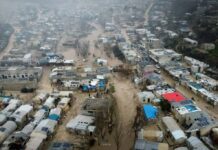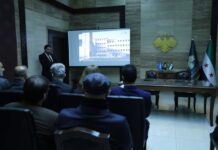
The recent nomination of “investigative journalist” Hadeel Al-Arja’s article, The Shocking Practice of Forced Puberty in Refugee Camps in northern Syria, for the Fetisov Journalism Award (FJA) 2023 has reopened old wounds regarding the apparent media bias in Middle East coverage.
The Syrian Salvation Government’s (SSG) Ministry of Media issued a statement expressing concern about Arja’s nomination claiming her investigation “contains fallacies” and “lacks professional standards and ethics.” They urge the awards committee of the FJA to reconsider the nomination, citing that it contradicts the principles of journalistic integrity and distorts the region and its people. They also mention previous reports about northern Syria that were retracted due to being false.
The news of the nomination has also prompted the creation of an online petition urging those concerned with the spurious allegations and lack of oversight to acknowledge such a widely critiqued and suspected investigation. It underscores the broader implications of misinformation and the ethical responsibilities of journalists and media professionals.
Arja’s article, which alleges the widespread practice of forced puberty and early marriage of young girls in northern Syria, has been met with skepticism and refutation from various media outlets, including Syria TV, Orient, Resala Post, and Aram. Authors Aisha Sabry and, Ahmed Abdel Hamid in particular, presented special investigations refuting the allegations of Arja’s article.
Presenting live testimonies contradicting the claims of forced puberty in the camps of northern Syria. Testimonies from women in the camps expressed shock at the news of forced puberty and denied its existence. Furthermore, the investigation revealed that the alleged phenomenon was not known among the more conservative Islamic society of the region.
Additionally, Araj’s article’s reliance on pseudonyms and testimonies from unnamed sources has been questioned. The lack of concrete evidence and the use of unverified claims have raised doubts about the credibility of the article.
The numerous refutations highlighted the scarcity of hormonal medications in pharmacies, the strict regulations surrounding their sale, and the absence of a culture of hormonal medications in the local community. Health directorates in Idlib and Aleppo have also denied the existence of forced puberty, emphasizing that the decisions to ban the sale of hormonal medications, cited in the article, were unrelated to the alleged practice.
These refutations further indicate several fallacies in the original investigation, including the confusion between medications for treating thyroid diseases and the normal signs of puberty, the absence of the term “forced puberty” in medical and legal dictionaries, and the lack of differentiation between individual cases and widespread phenomena.
Abdel Hamid mentioned in his Resala Post article that he believes there is a political and ideological agenda at play in such “investigations” mentioning there is a stark difference between those who defend women’s rights, who advocate and protect them from trafficking sexual abuse, and misconduct and those who exploit them with exaggerated, fabricated or misrepresented stories to further their careers or agenda.
The recurrent issues regarding such biased coverage of northern Syria underscore the continued need for a balanced, informed, and respectful approach to addressing sensitive issues in the area and maintaining strong safeguards in ensuring the validity of sources.








